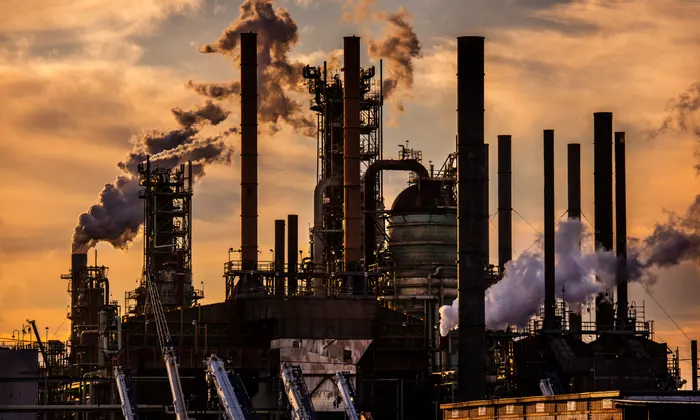In the bustling city of Alhambra, the fast fashion phenomenon has woven its way into the fabric of daily life, leaving a concerning trail of waste in its wake. This trend, fueled by rapid production cycles and ever-changing styles, not only affects our closets but has profound consequences for the environment. As we delve into the impact of fast fashion on waste generation, it’s crucial to acknowledge the role of local businesses like The Pro Plumbing. Amidst the fashion frenzy, they stand as a beacon of sustainability, offering solutions to minimize the ecological footprint in our community.
Understanding Fast Fashion:
To comprehend the impact of fast fashion on waste generation, we must first grasp the essence of this industry. Fast fashion is characterized by its quick turnaround from design to production, allowing retailers to bring new styles to market rapidly. The industry thrives on the constant demand for the latest trends, compelling consumers to purchase more frequently. With clothing becoming more affordable than ever, the turnover of garments in people’s closets has skyrocketed.
The Cycle of Waste:
The fast fashion cycle perpetuates a culture of disposability, contributing to a significant volume of textile waste. In Alhambra, this places strain on local landfill management. Efforts towards waste reduction in Alhambra are crucial in light of the escalating fashion-related waste. Initiatives promoting sustainable practices and collaborations with local businesses, such as The Pro Plumbing, which offers eco-friendly solutions, can aid in mitigating the impact of the fast fashion cycle on landfills and encourage a more environmentally conscious community.
Local Businesses and The Pro Plumbing:
Amidst this sea of fast fashion, some local businesses, like The Pro Plumbing, are taking steps towards sustainability. While plumbing may seem unrelated to the fashion industry, The Pro Plumbing recognizes the importance of environmental responsibility in every aspect of daily life. By addressing issues like water efficiency and eco-friendly plumbing solutions, they contribute to the broader effort of creating a sustainable community in Alhambra.
The Environmental Toll of Fast Fashion:
Textile Waste:
Fast fashion leads to an alarming surge in textile waste, with the equivalent of one garbage truck of textiles being landfilled or incinerated every second globally. In Alhambra, this disposability places strain on local garbage disposal services, as tons of discarded clothing contribute to overflowing landfills. Sustainable alternatives and responsible waste management practices are crucial to alleviate the environmental burden imposed by the fast fashion industry on garbage disposal services.
Chemical Pollution:

The production of fast fashion involves the extensive use of chemicals, from dyes to finishing agents. These chemicals, when not properly managed, can find their way into local water sources, posing a threat to aquatic ecosystems. The proximity of Alhambra to water bodies emphasizes the need for responsible chemical disposal practices.
Carbon Footprint:
The carbon footprint of fast fashion extends beyond the manufacturing process. Transportation of garments from production facilities to distribution centers and then to retail outlets contributes to greenhouse gas emissions. This global supply chain has implications for climate change that resonate even in Alhambra.
Water Usage:
The water-intensive nature of fast fashion production extends to Alhambra, exacerbating water scarcity issues. Excessive water usage in textile manufacturing impacts local water sources. This strain on water resources emphasizes the importance of sustainable practices. Businesses like The Pro Plumbing, offering eco-friendly pipe fixing services, play a vital role in addressing water-related challenges, aligning with the need for responsible water usage in both the fashion industry and community infrastructure.
The Local Perspective: Alhambra’s Fashion Scene
In Alhambra, the fast fashion trend is woven into the local fabric, influencing the diverse fashion scene. However, this surge in fashion turnover creates challenges for local garbage disposal services. Efficient garbage disposal not only supports environmental sustainability but also fosters economic benefits for Alhambra. Streamlined waste management systems, including proper disposal of fashion-related waste, contribute to a cleaner environment, improved public health, and potential cost savings for the community.
Consumer Awareness and Choices:
While the fast fashion industry bears significant responsibility, consumers play a crucial role in driving change. Raising awareness about the environmental impact of fast fashion is essential to encourage more mindful consumer choices. In Alhambra, community initiatives and educational programs can contribute to fostering a greater understanding of sustainable fashion practices.
The Role of Local Businesses: The Pro Plumbing Example
Local businesses, even those seemingly unrelated to the fashion industry, can make a positive impact by adopting sustainable practices. The Pro Plumbing is a prime example. By offering eco-friendly plumbing solutions, they contribute to the broader goal of creating a sustainable and environmentally conscious community. Collaborations between businesses, community organizations, and local government can pave the way for a more sustainable future in Alhambra.
Sustainable Alternatives:
Thrifting and Second-hand Shopping:

Encouraging a shift towards second-hand shopping and thrift stores can significantly reduce the demand for new fast fashion items. Alhambra can support and promote local thrift stores to provide affordable and sustainable fashion alternatives.
Local and Ethical Brands:
Supporting local and ethical fashion brands that prioritize sustainable and eco-friendly practices is crucial. By endorsing businesses that prioritize quality over quantity, Alhambra residents can contribute to a more sustainable fashion landscape.
Clothing Swaps and Community Events:
Organizing clothing swaps and community events can foster a sense of community while promoting sustainable fashion practices. Alhambra can host events where residents exchange clothing items, reducing the need for constant new purchases.
Educational Initiatives:
Implementing educational programs within schools, community centers, and online platforms can empower individuals with the knowledge needed to make informed choices about their fashion consumption. Alhambra can collaborate with local educators and organizations to integrate sustainability into the curriculum, fostering a sense of environmental responsibility from an early age.
Municipal Policies and Regulations:
Alhambra can explore the implementation of municipal policies and regulations that incentivize sustainable practices within the fashion industry. This may include tax incentives for businesses adopting eco-friendly measures, waste reduction targets, or requirements for transparent reporting on environmental practices.
Fashion Revolution Events:
Participating in global initiatives like Fashion Revolution Week can bring attention to the impact of fast fashion in Alhambra. Hosting events, panel discussions, and workshops during this week can engage the community in meaningful conversations about the social and environmental aspects of the fashion industry.
Support for Upcycling and DIY Culture:
Encouraging a culture of upcycling and do-it-yourself (DIY) fashion can foster creativity while reducing reliance on mass-produced clothing. Alhambra can support workshops and events that teach residents how to repurpose old garments, giving them a new lease of life.
Collaboration with Fashion Industry Stakeholders:
Collaboration between the local government, businesses, and fashion industry stakeholders is essential. By fostering partnerships with retailers, designers, and manufacturers, Alhambra can work towards implementing sustainable practices throughout the entire fashion supply chain.
FAQs
How does fast fashion affect waste?
Fast fashion accelerates the cycle of clothing production and consumption, leading to a surge in textile waste as garments are quickly discarded in favor of new trends. The relentless pursuit of low-cost, mass-produced clothing contributes to a disposable culture, where items end up in landfills, increasing environmental impact. This rapid turnover of fashion items amplifies the overall volume of waste, exacerbating the strain on ecosystems and contributing to the pollution of land and water resources.
What is the impact of fast fashion on the environment?
Fast fashion has a profound environmental impact, contributing to massive amounts of textile waste in landfills and incinerators. The industry’s reliance on resource-intensive processes, such as water-intensive production and chemical-intensive dyeing, further depletes natural resources and contributes to pollution. Additionally, the extensive global supply chain of fast fashion generates significant carbon emissions, contributing to climate change and its associated environmental consequences.
How much pollution and waste are caused by the fashion and textile industry?
The fashion and textile industry is a major contributor to pollution and waste, accounting for an estimated 20% of global water pollution due to dyeing and finishing processes. Annually, the industry generates about 92 million tons of textile waste, much of which ends up in landfills or incinerators. Moreover, the extensive use of synthetic materials and energy-intensive production processes contributes to a substantial carbon footprint, exacerbating the environmental impact of the fashion and textile sector.
How fast fashion affects society?
Fast fashion influences society by promoting a culture of rapid consumption, encouraging frequent purchases driven by short-lived trends, and contributing to a throwaway mentality. This cycle not only places financial strain on consumers but also fosters environmental degradation through increased waste and resource depletion. Additionally, the fast fashion industry is often linked to unethical labor practices, exploiting workers in pursuit of lower production costs, raising ethical concerns within society.
What is the biggest impact of fast fashion?
The most significant impact of fast fashion lies in its contribution to environmental degradation, as the industry generates vast amounts of textile waste, pollutes water sources with chemicals, and has a substantial carbon footprint. Additionally, fast fashion perpetuates unethical labor practices, exploiting workers in low-wage conditions and unsafe environments. The combination of environmental and social consequences underscores the urgent need for sustainable and ethical alternatives in the fashion industry.
Conclusion
In Alhambra, the impact of fast fashion on waste generation is an issue that requires collective attention and action. The city’s unique blend of cultures and communities provides an opportunity for diverse voices to come together and address the environmental challenges posed by the fashion industry. By promoting awareness, supporting sustainable initiatives, and embracing eco-friendly alternatives, Alhambra can weave a new narrative—one that prioritizes both style and environmental stewardship. As local businesses like The Pro Plumbing lead the way, the community can stride towards a more sustainable and fashion-forward future.

